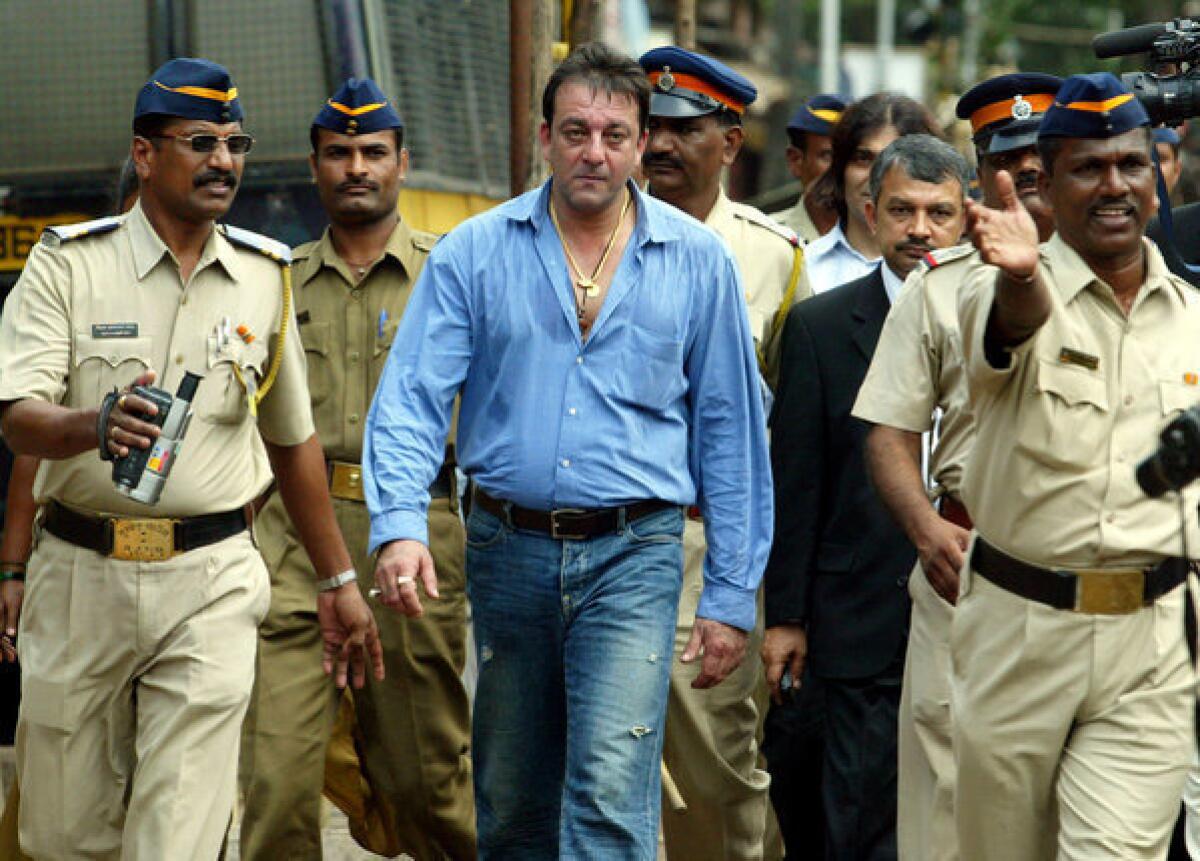Death sentence upheld in 1993 Indian bombing that killed 257

- Share via
NEW DELHI -- India’s lumbering legal system delivered its final verdict Thursday in a 1993 serial bombing attack in Mumbai that killed 257 people and injured 700, upholding the death penalty for one of the accused masterminds and reducing to life in prison from death the sentences against 10 others.
The 10 don’t deserve execution because they were pawns in the plot, the Supreme Court ruled about two decades after the deadliest terrorist attack in India’s history. The court blamed Pakistan’s Inter-Services Intelligence spy agency for training the attackers and providing them with weapons, an accusation Pakistan has long denied.
“Islamabad owes an explanation not only to India but also to the entire world for the terror strike,” the court said in its judgment, adding that Indian police, custom and coast guard officials were also at fault for failing to intercept weapons arriving by ship from Pakistan.
In a closely covered side-show in Bollywood-enthralled India, the Supreme Court handed down a five-year jail sentence to actor Sanjay Dutt, 53, for illegal possession of a 9-millimeter pistol and three AK-56 assault rifles supplied by one of the conspirators, but acquitted him of terrorism charges.
The attack took place shortly after lunch on March 12, 1993, when explosives hidden in cars, suitcases and motor scooters detonated at 13 locations, causing at least $6 million in property damage.
The largest loss of life occurred in a double-decker bus. Other targets included the stock exchange, an Air India building, an airport, several hotels, banks and shopping districts. Many of those involved were disgruntled young Muslim men from Mumbai, some of whom reportedly traveled to Pakistan by way of Dubai for weapons training.
The military-grade C-4 explosives used in the attack, reportedly for the first time in India, were smuggled from Pakistan by boat after Indian coast guard and customs officials were bribed to avoid inspection.“Their greed and lack of honesty and integrity not only resulted in huge loss of lives but also caused a serious setback to India’s economy,” the court said Thursday.
Real-estate developer Kirti Ajmera, 56, who was just entering the stock exchange that day, said the verdict is long overdue.
“It should’ve taken two years, not 20,” he said. “It’s so late and doesn’t mean much. Many victims have died and we still haven’t received any government compensation.”
Indian authorities say the attack’s masterminds were infamous Mumbai underworld boss Dawood Ibrahim, head of global crime syndicate D-Company, his lieutenant Ibrahim Mushtaq Abdul Razak Nadim Memon, better known as Tiger, and Memon’s brother Yakub Memon, a D-Company accountant. The attack was allegedly planned in Dubai, where Dawood Ibrahim and Ibrahim Memon were based, in retribution for the razing of the Babri mosque in 1992 by Hindu hard-liners in Ayodhya.
The day before the bombings, Yakub Memon fled to Dubai with his family. Under a still-hazy deal involving the Indian government, he returned to India in 1994 with an understanding that the other two would follow, according to ex-Mumbai police supervisor Y. C. Pawar, presumably in return for leniency.
The deal fell apart, however, with the other two reportedly moving to Karachi in Pakistan and Yakub Memon left to take the full fall. “We have no doubt about [Yakub] Memon’s role in the blasts,” the court said Thursday in upholding his death sentence.
The trial opened in April 1994 and carried on for 14 years, involving about 600 witnesses, leading to a 4,230-page verdict in July 2007. Of the 123 accused at that stage, 23 were acquitted, 12 received capital sentences, 20 were handed life sentences and 68 received lesser sentences. Three have since died, including one who received the death penalty.
The government filed an appeal in 2007 hoping for tougher verdicts. A 2011 hearing in the case was reportedly the first time the Supreme Court used laptops in a legal system still heavily reliant on paper. In Thursday’s decision, life sentences was affirmed for 16 other defendants.
Legal and criminal justice experts said they questioned a legal system that takes a generation to deliver a final verdict, adding they saw little prospect of immediate reform.
“This is typical of criminal cases, which tend to drag on,” said Bibek Debroy, research professor with New Delhi’s Center for Policy Research think tank and author of the book “In the Dock -- Absurdities of Indian Law.” “It’s not that unusual.”
Last year, Washington barred Americans from doing business with Dawood Ibrahim or Ibrahim Memon, both alleged drug traffickers, as part of its battle against “the nexus of crime and terrorism in South Asia,” characterizing D-Company as “one of the world’s most notorious criminal organizations.”
Ajmera, whose face, right arm, right ear and lungs were damaged in the 1993 blast, requiring 40 surgeries over the last 20 years, said he blames India more than Pakistan.
“We let them attack us repeatedly without improving our security,” he said. “There are still no closed circuit TV cameras in train or bus stations, leaving us to God’s mercy. The government just doesn’t learn from its mistakes.”
ALSO:
Jailed Kurdish leader calls for truce with Turkey
Hackers who hit South Korea used an old tactic
Israeli court rejects Arabs’ appeal to stop freeway
Tanvi Sharma in the Times’ New Delhi bureau contributed to this report.
More to Read
Sign up for Essential California
The most important California stories and recommendations in your inbox every morning.
You may occasionally receive promotional content from the Los Angeles Times.










